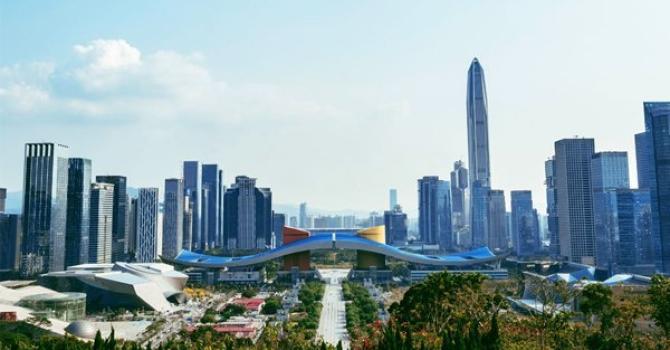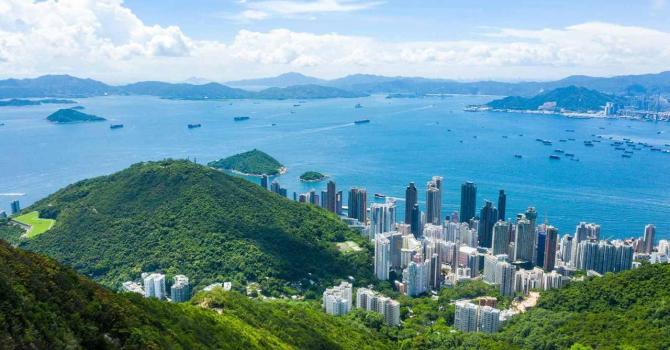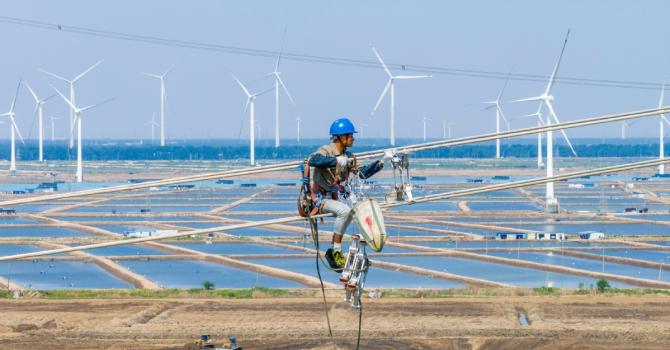What China’s carbon neutral pledge means for Hong Kong
This year has been full of surprises. Covid-19 still hangs over the world, devastating economies. Elections have been postponed because of the pandemic, including ours in Hong Kong. The coronavirus is also affecting geopolitics – and Hong Kong is in the midst of the ever-widening US-China conflict.
Another major surprise was Chinese President Xi Jinping’s September 22 pledge at the United Nations General Assembly that China would achieve carbon neutrality by 2060. Before then, China had never committed itself to an absolute target. It represents a resetting of the nation’s agenda with profound effect on the economy, finance, and technological and social development.
Then President Xi addressed the UN Summit on Biodiversity on September 30, where he called on the world to reverse biodiversity loss. Both statements, on climate change and biodiversity, were given at the highest international level. They will affect China’s domestic policies in the 14th five-year plan for 2021-25 that is being prepared, and all subsequent plans.
Then on October 12, just two days before Hong Kong Chief Executive Carrie Lam Cheng Yuet-ngor’s annual policy address, she announced a delay till end-November. Lam said that her proposals to Beijing needed further discussions with multiple ministries.
Let us not quarrel with her about the delay when the ground is shifting quite fundamentally. With China resetting the national agenda for development, Hong Kong needs to pay attention to the many signals that have emerged.
Firstly, the climate pledge means China will phase out coal in favour of more renewable and nuclear energy, encourage greater electrification of transport, develop new fuels such as hydrogen fuel cells in electric vehicles, develop bio-energy, including from waste, and make buildings much more energy-efficient, if not with zero emissions.
All that requires trillions of dollars to shift China’s brown economy into a green one. The People’s Bank of China is prepared. In 2015, the central bank had already issued a detailed plan to establish a green financial system to more accurately reflect environmental costs and encourage environmentally friendly industries.
We will see provinces and cities adopt carbon reduction targets, as well as improve waste management and nature conservation plans. Industries will come up with sectoral action plans with targets and timelines. Mainland-listed companies have to publish environmental reports from this year, and the reporting will only become more sophisticated as managing carbon and environmental performance becomes de rigueur.
All this will boost the emerging green finance movement that pushes corporations to disclose climate and sustainability risks. Lending will favour green projects.
Secondly, Beijing announced on October 11 a new plan for Shenzhen to further open up and exercise greater autonomy in many sectors, such as energy, telecoms, public utilities, transport, finance, shipping and education. It also includes developing a data market.
Let us face it, Shenzhen and Guangdong are physically larger portions of the Greater Bay Area – of which Hong Kong and Macau are a part – and have led many reforms on the mainland. That Shenzhen, now known as China’s Silicon Valley, has greater autonomy is both a threat and an opportunity for Hong Kong, depending on how Hong Kong plays its hand.
This leads to a third observation. The mainland has a state-led system, where the government plays the dominant role. In contrast, Hong Kong officials have been trained to believe in “positive non-interventionism” and “leaving it to the market” – seeming to intervene only when necessary and, even so, minimally.
While this is not the place to argue the merits of the two systems, the mainland has succeeded because it makes purposeful changes and has the state capacity to do so. This has required substantial training of talent in the government over the past four decades.
The problem for Hong Kong is how our officials could fit their belief system into a state-directed giant economy that is reforming at a breathtaking pace. The challenge is with the mainland powering away, how might Hong Kong keep up Whatever ideas for her policy address Lam had shared with Beijing, they might not have fit neatly into the mainland’s thinking, or even Shenzhen’s ambition.
Likely there will be a discussion in Beijing about Hong Kong’s fractious politics. The problem is not only the pro-democracy camp. Members of the pro-establishment camp have been sticks in the mud. Civil service inertia is yet another problem.
Take the politically neutral example of the waste charging bill. Pro-establishment legislators did not give their wholehearted support because they think the bill is unpopular with voters, even as the mainland has stepped up on waste management. They do not want to continue to scrutinise the bill even though there is extra time to pass it, with Legislative Council elections postponed for a year.
Just think what Hong Kong needs to do to achieve carbon neutrality. Taxis, minibuses, buses and ferries will have to be electrified. Buildings will have to be retrofitted. Land in the New Territories will have to be more sensibly planned. Will the pro-establishment camp stand on the side of the vested interests?
Another example is buildings. Hong Kong needs to update and reform the city’s building laws and regulations to ensure our buildings are as energy efficient as possible. This is a no-brainer but officials have not been willing to do it. How can we deal with this civil service apathy?
For the financial secretary and officials in charge of commerce, trade, finance, tourism and innovation and technology, will they see “pillar industries” comprising trading and logistics, financial services, professional and producer services, and tourism through the new lens of decarbonisation?
Lam will need to find a new voice and a new narrative to galvanise the community to get on board. Decarbonisation may just be the perfect frame to craft new messages that not only fit China’s development agenda but also give Hong Kong back its international voice.
Christine Loh is chief development strategist and adjunct professor at the Hong Kong University of Science and Technology’s Division of Environment and Sustainability.
This article appeared on SCMP online at https://www.scmp.com/comment/opinion/article/3105528/what-chinas-carbon-neutral-pledge-means-hong-kong




